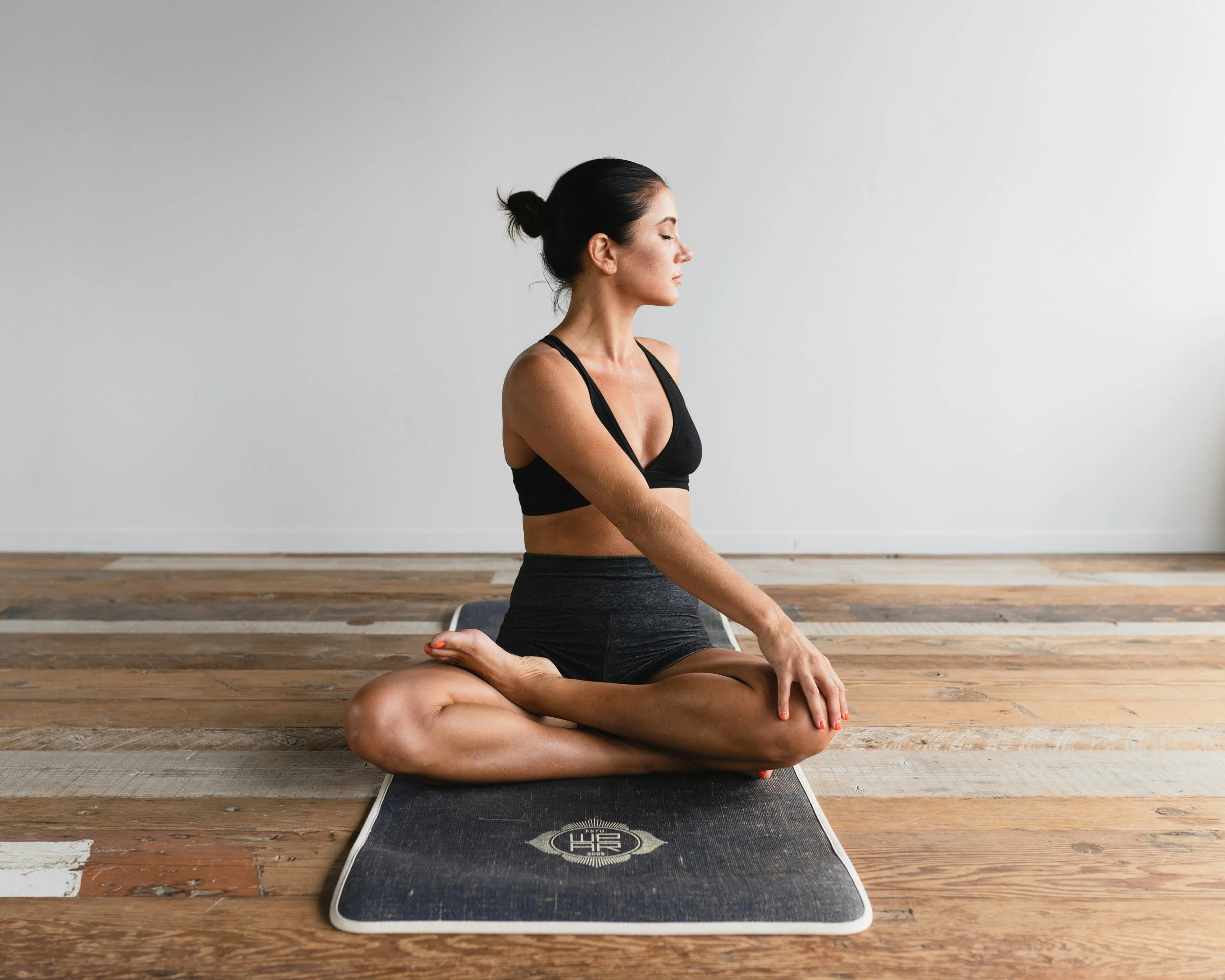Yoga for Inflammation
Chronic inflammation is often the root of many health challenges, from autoimmune disorders to metabolic conditions. While medication and dietary changes are part of its management, emerging research suggests that yoga is an accessible and powerful tool to help manage inflammation in the body. In this post, we’ll explore the science behind how yoga impacts our inflammatory responses and why it might be a great addition to your wellness routine.
The "HOW":
Yoga helps decrease inflammation through different pathways:
Balancing the Stress Response: Chronic stress elevates hormones like cortisol, which increase inflammation. Yoga's postures, breathing, and meditation practices activate the parasympathetic "rest and digest" system, helping to lower cortisol and shift the body away from its inflammatory "fight-or-flight" state (Aruchunan et al., 2023).
Direct Impact on Inflammatory Markers: Studies show that consistent yoga can reduce pro-inflammatory markers like IL-6, TNF-alpha, and CRP in the bloodstream (Mishra et al., 2024). Some research also suggests it can increase anti-inflammatory markers such as IL-10 and TGF-beta (Mishra et al., 2024).
Cellular and Genetic Modulation: The benefits of yoga may even extend to a cellular level, influencing the gene expression that controls inflammatory processes, and potentially reducing inflammatory signals and increasing anti-inflammatory ones (Mishra et al., 2024).
The anti-inflammatory effects of yoga are not just limited to one or two conditions. Research across diverse populations and health challenges demonstrates its vast potential:
Autoimmune Diseases
For conditions like Rheumatoid Arthritis and Ankylosing Spondylitis, where inflammation is present, yoga has shown remarkable promise. Studies indicate regular yoga can reduce pain, stiffness, and key inflammatory markers such as CRP, IL-6, and TNF-alpha (Mishra et al., 2024). It may even boost anti-inflammatory markers like TGF-beta and improve telomerase activity, suggesting a deeper cellular benefit (Mishra et al., 2024). Even for Systemic Lupus Erythematosus, yoga helps manage musculoskeletal issues and reduce inflammation by decreasing pro-inflammatory pathways (Aruchunan et al., 2023).
Cardiovascular and Metabolic Health
Chronic inflammation is a known risk factor for heart disease and metabolic disorders. Yoga interventions have been linked to reduced inflammatory markers like IL-6 and CRP in individuals with heart failure (Estevao, 2022). For those at risk of metabolic syndrome or obesity, yoga has shown potential in reducing weight, BMI, and inflammatory cytokines like IL-6 and TNF-alpha and increasing beneficial markers like adiponectin (Aruchunan et al., 2023). Research suggests that yoga supports overall metabolic and cardiovascular health by targeting the underlying inflammation.
Cancer Support
Cancer survivors can often experience persistent inflammation, and yoga offers a complementary option for healing. Research shows consistent yoga can lead to lower fatigue, increased vitality, and reduced inflammatory markers such as IL-6, TNF-alpha, and IL-1 beta (Aruchunan et al., 2023). These benefits extend to influencing pro-inflammatory gene transcription factors, potentially helping to rebalance the body's inflammatory signaling (Estevao, 2022).
Stress-Related Inflammation
Healthy individuals who experience chronic stress can have elevated inflammatory markers. Studies on student volunteers facing exam stress or caregivers of dementia patients have demonstrated that yoga can significantly reduce stress hormones like cortisol (Estevao, 2022). Therefore, yoga can help treat disease and prevent stress-induced inflammation.
The scientific evidence is evident, yoga is more than just a physical exercise; it's a powerful and accessible tool for managing chronic inflammation. Consistent findings from different conditions highlight yoga's potential to reduce inflammatory markers, calm stress responses, and even influence inflammation-related genetic pathways. By incorporating regular yoga into your routine, you can take an active step towards soothing your body's inflammatory responses and supporting your overall health.

